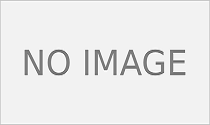Key Tariff Rules for Maine Travelers Bringing Goods from Canada
Jayna Smith
Until recently, cross-border travel was a routine part of life for many in the area. Now, for both travelers and businesses, understanding what to expect at the U.S.-Canada border regarding tariffs and import regulations is crucial to avoid unexpected costs. To help clear up common concerns, U.S. Customs and Border Protection (CBP) provided insights on how tariffs and duties apply to goods entering Maine from Canada.
A frequently asked question is whether tariffs apply to takeout food or groceries purchased in New Brunswick and brought back to Maine. According to CBP, these items are typically not considered “importations” and are therefore not subject to tariffs. However, travelers should remain aware of U.S. regulations that limit certain food items, like meats, dairy, and produce.
For most personal purchases, the de minimis exemption plays a significant role in duty-free allowances. Under this rule, an individual may bring in up to $800 worth of goods per day for personal use without paying duties. This exemption is meant for items that are not for resale and is particularly helpful for local consumers who rely on Canadian stores for specific items.
When it comes to commercial imports, tariff rates depend on whether the goods qualify under the U.S.-Mexico-Canada Agreement (USMCA). Starting on March 7, 2025, goods meeting USMCA's rules of origin will be exempt from additional tariffs. However, goods that don't meet the criteria will face a 25% tariff. Business owners importing goods from Canada should check whether their products are eligible to avoid unexpected costs.
For goods exceeding the duty-free limit or that don’t qualify for an exemption, CBP collects tariffs directly at the border. Travelers may need to pay these duties using a credit card or other approved payment methods before bringing their items into the U.S.
Failure to declare goods that are subject to tariffs can lead to fines, additional fees, or even the seizure of the items. CBP urges travelers to be honest when declaring their purchases to avoid penalties.
A common misconception is that all personal purchases are duty-free or that grocery items are automatically taxed. Some also assume that underreporting the value of goods will go unnoticed. In fact, CBP agents have the authority to verify the value of items and apply tariffs when necessary.
For more information on tariff rates and import regulations, CBP recommends visiting cbp.gov, where you can find the Harmonized Tariff Schedule of the United States and other useful resources.




